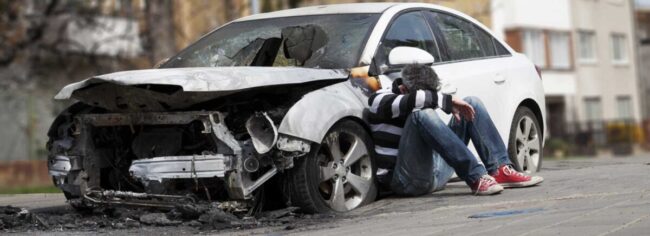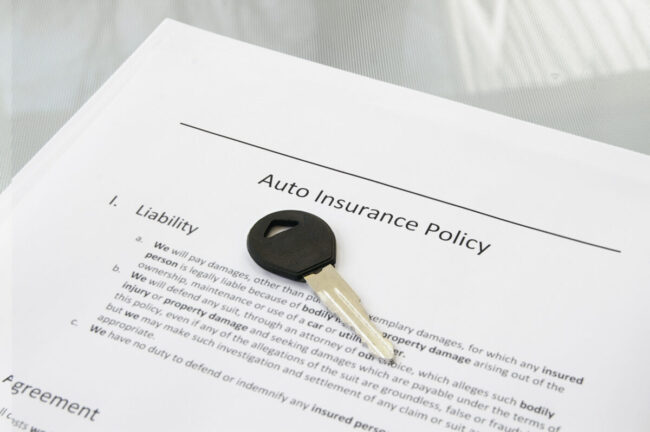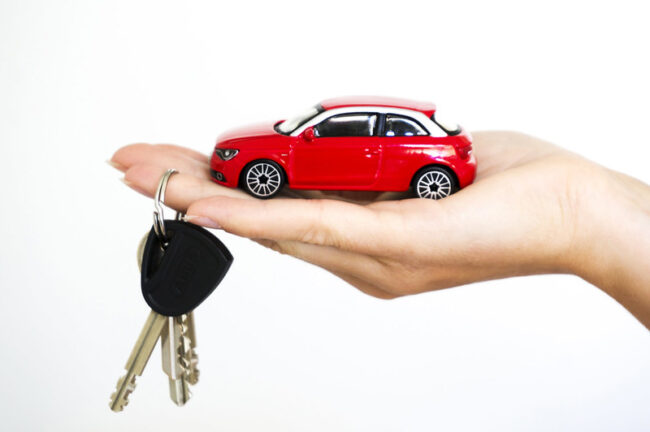A car accident is a terrifying and stressful experience. Even more so if you discover that your car is totaled.
If your car is deemed a total loss by your insurance company, it typically means that the cost of repairs exceeds a specific value. For example, in many cases, there is a 90% repair cost threshold for totaled cars, which refers to the pre-accident value of your car.
You must prepare for any kind of car accident, especially one that means you will lose your car. This article will help guide you through the necessary steps of working through a totaled car situation and advise you on how to get the maximum payout from your insurance provider.
What to Do After An Accident

The first thought in your head after an accident will not be whether your car is totaled or not. You will most likely worry about injuries to yourself, your passengers, and other people involved in the accident.
Check yourself and everyone else for injuries if you can. Even if you do not see any injuries, you must call emergency services right away.
Adrenaline can have a strange masking effect. Even if you and the others feel fine after the accident, you may suffer delayed injuries when the adrenaline wears off.
While you wait for emergency services to arrive, you should try to secure the scene by turning on hazard lights and setting up warning cones or triangles.
If you feel okay, try to get some pictures of the damage to your car and the surrounding area. Exchange information with involved drivers only if they are able to do so. If you notice witnesses on the scene, get statements and contact details.
When the worst shock wears off and you have received medical attention, report the accident to your insurance company. Your insurance provider will guide you through the claims process and arrange for an adjuster to assess the damage to your car.
You must be honest about the details of the accident when speaking to your insurer. However, refrain from making any statement or admitting fault.
Understanding Your Insurance Coverage

It is important to know what your insurance policy covers. With collision or comprehensive insurance, you may receive the full amount for your totaled car. You should review your policy for the deductible amount and limitations on your policy coverage. Before the adjuster inspects your car, clarify everything you are unsure about with your insurance company.
The Adjuster’s Assessment
The adjuster will use industry resources and particular databases to calculate your car’s pre-accident value. This value is known as the ACV (actual cash value). The adjuster will use this value and the repair estimate to determine if your car is totaled.
If the adjuster decides your car is totaled, your insurance company will offer a settlement based on the ACV minus your deductible.
There are some factors to consider in this scenario. For example, you could do some research of your own to get an idea of what your car is worth in the current market and your area. Doing this will help you assess how fair your insurance provider’s settlement offer is.
At the same time, you can negotiate a higher settlement. If you have evidence proving your car’s ACV is higher than expected, use it to strengthen your case.
If your insurance company decides your car is totaled, they can take possession of it. They can sell it for parts and deduct the salvage value from your settlement offer. In some cases, you may be able to negotiate keeping the car and taking the salvage value.
Settling Your Claim

When you settle your claim, your insurer will send you a payout. If you are still paying off your totaled car, the check will go to the lender, and you will receive whatever is left.
If there is enough money left over, you can use the settlement money to buy another car. If you do not have much money left, you may want to consider a temporary solution like public transport. Carpooling is another cost-effective option while you save some more money for a new car.
There is the option of keeping the totaled car and repairing it, depending on the laws in your state. However, this is generally not a good option, as you will be severely limited in reselling the car. There will also likely be safety concerns surrounding a fixed-up totaled car.
Other Factors to Consider
Totaling your car and trying to sort out the insurance claim can become a chaotic process. It can also cause you to lose sight of some other critical factors.
For example, you may have had personal belongings in your car when it was totaled. Your insurance company may cover the replacement if you do not recover those belongings.
Also, with active gap insurance, you can cover the difference between your car loan amount and the ACV if your car is totaled. This is especially helpful if your outstanding balance is more than the car is worth.
If you sustained injuries in the accident, your insurance may cover some of your medical expenses. However, if you have limitations on your policy or severe injuries, you may need to file a claim against the at-fault driver’s insurance.
If your case is more complex than you thought, you should consider hiring an attorney. A lawyer’s advice and help will be valuable if there is a dispute with the other driver’s insurance provider.
It is important not to rush any of the decisions you need to make. Stay in contact with your insurance company to get all the information you need. If you decide to buy a new car, get finance options and quotes from several car dealers to ensure you get a good deal.
Looking Ahead

There is no non-stressful way to get through a totaled car process. But with these steps, you will find it easier to navigate through claims, settlements, and buying a new vehicle. This will help you move forward confidently and put the chaos of totaling your car behind you.
